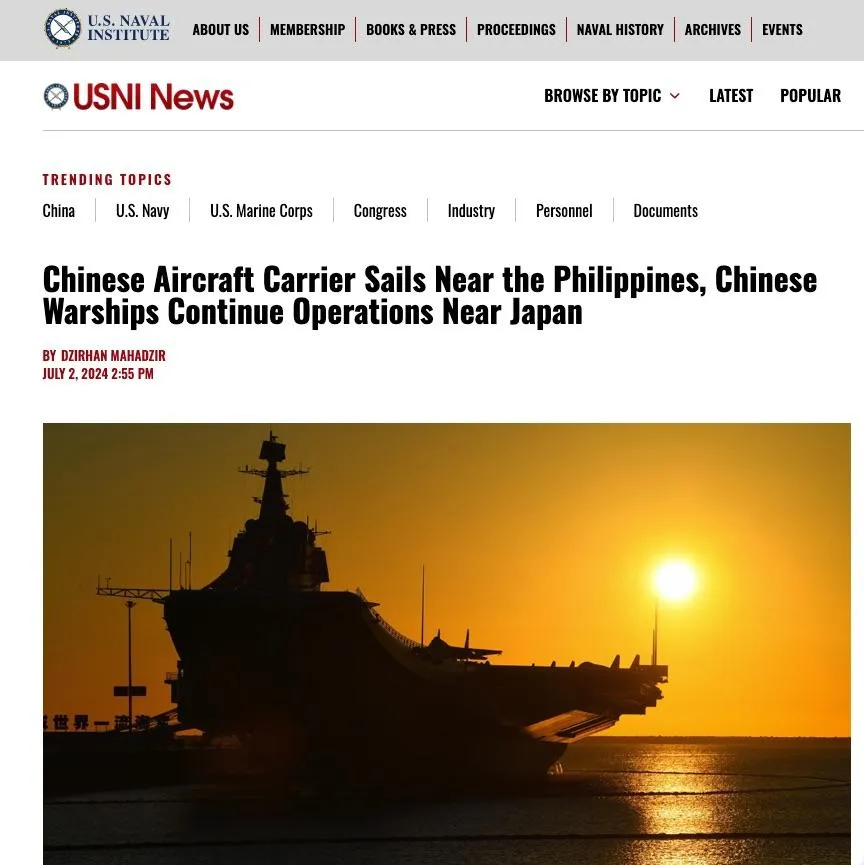"The Society that separates its Scholars from its Warriors, will have its thinking done by cowards and its fighting done by fools." Thucydides

PURPOSE: Become the Scholar Warrior for your Goals
Improve Every Single Day!
Improve Yourself 1% a Day = 3600%+ in a Year
Thought-Technique-Strategy of the Week:

Create Your Powerful Identity
Let's say you wish to excel in the art of painting. Or open your own woodworking business. Or become a Filmmaker which I did many years ago. The key is to utilize a Powerful Identity in reframing your Focus. Let's stick with painter for the moment.
Use the words: "I am a painter." The powerful use of the "I am..." phrase welds this new outlook to you mentally, intellectually but, more importantly, emotionally. Why emotionally? When you talk about painting (or any very exciting goal), then you can feel the electrical excitement within your body and Being.
"Being" is the act of existing within this newly embraced identity. Then you grow and become.
READ THE MAIN ARTICLE HERE
7 Actions To Change Your Life
Michael's Kenpo Karate Weapons Form - Knife & Pistol
You can see my Pistol & Knife form at approximately 10:31 here in the video from 2010. This is at Bryan Hawkins Kenpo Karate where I have studied Kenpo Karate for approximately over 35 years. The form is one that I created to advance in the system, utilizing Kenpo Karate principles. I use the form with the primary weapon as the firearm, duly guarded and using the knife for close-in drills. This is the training the Warrior phase!




Chinese Maneuvers & Fiction Writing
I truly enjoyed Tom Clancy's books which involved technology, military settings and geopolitical maneuvers on a global scale. My "Stealing Thunder" book series uses these elements too in a global plot to start a war and - as usual - take power.
But I am seeing the pages of my book - not all of them but plenty of them - unfold in the Western Pacific more and more. For those who study the geopolitical world of military maneuvering, here is a directory of China's PLAN (People's Liberation Army Navy) warships.
Chinese Military Movements and Their Implications for Global Stability
In a recent development that echoes the tension-filled pages of a Tom Clancy novel, Chinese naval forces have demonstrated provocative maneuvers near the Philippines and Japan. According to a detailed report from the U.S. Naval Institute, the Chinese aircraft carrier Shandong has sailed perilously close to Philippine waters while other Chinese warships continue their operations near Japan. These actions underscore the growing aggression of the Chinese Communist Party (CCP) in the Western Pacific, raising alarms among geopolitical and military analysts.
The Western Pacific has long been a hotbed of strategic importance, serving as a crucial maritime corridor for international trade and military operations. Think about how much oil and other essential raw materials transit the strategic Straits of Malacca and the South China Sea to American allies like South Korea, Japan and the Philippines. The recent activities of the Chinese military in this region are not just routine exercises; they represent a calculated show of force aimed at destabilizing American allies. This aggressive posturing is part of a broader strategy by the CCP to assert its dominance and challenge the existing power dynamics in the region. Essentially they are saying, "We are a force to contend with and you should listen." The CCP is projecting power with its navy.
Fiction Meets Reality in Geopolitical Thrillers
For readers who devour technothrillers and are captivated by the intricate power plays within global superpowers, these real-world events offer a chilling backdrop. My books, much like those of Tom Clancy, weave together elements of military strategy, geopolitical intrigue, and internal political drama within the CCP. They explore scenarios where power struggles within China's military and political hierarchy could lead to significant global consequences.
One of the fascinating aspects of writing technothrillers is the ability to project current geopolitical trends into future scenarios. By analyzing the strategies and motivations of key players, authors can create narratives that not only entertain but also provide insightful commentary on potential future developments. Fiction allows us to explore the "what ifs"—what if a faction within the CCP decided to take a more aggressive military stance? What if internal strife led to a power vacuum that destabilized the region?
Every military creates scenarios for 'what if' situations so that their training, thinking and strategic response is ready on a moment's notice.
These speculative scenarios serve a dual purpose. They engage readers with thrilling, action-packed narratives while also encouraging them to think critically about current events and their possible outcomes. By imagining how today's conflicts might evolve, we can better understand the complexities of international relations and the importance of strategic planning.
China's Nine Dash Line map shows their claims in the South China Sea to strangle the navigational freedom of this area for the other nations.

Addressing Geopolitical Issues Through Storytelling
Storytelling has always been a powerful tool for addressing complex issues. Through the lens of fiction, we can explore the ethical, political, and social implications of military actions and geopolitical maneuvers. Technothrillers, in particular, offer a unique platform to dissect the motivations behind aggressive policies and the potential fallout from unchecked power struggles.
One has to only reflect upon the 911 terrorists who conceived the plan to attack across the US on September 11, 2001. Their attack had the three impactful attributes: Dramatic, Economic and Symbolic. They used simple weapons and terror to accomplish their ends.
In my books, I strive to create a balanced portrayal of all sides involved, highlighting the internal conflicts within the CCP as well as the broader international ramifications.
Conclusion
The recent movements of Chinese naval forces near the Philippines and Japan are a stark reminder of the ongoing geopolitical tensions in the Western Pacific. For technothriller enthusiasts, these events provide fertile ground for exploring high-stakes narratives that mirror real-world conflicts.
If you're intrigued by the intricate dance of power, politics, and military strategy, I invite you to explore my books and join me in imagining the future through the art of storytelling.
Link:

Chinese Maneuvers & Fiction Writing
I truly enjoyed Tom Clancy's books which involved technology, military settings and geopolitical maneuvers on a global scale. My "Stealing Thunder" book series uses these elements too in a global plot to start a war and - as usual - take power.
But I am seeing the pages of my book - not all of them but plenty of them - unfold in the Western Pacific more and more. For those who study the geopolitical world of military maneuvering, here is a directory of China's PLAN (People's Liberation Army Navy) warships.
Chinese Military Movements and Their Implications for Global Stability
In a recent development that echoes the tension-filled pages of a Tom Clancy novel, Chinese naval forces have demonstrated provocative maneuvers near the Philippines and Japan. According to a detailed report from the U.S. Naval Institute, the Chinese aircraft carrier Shandong has sailed perilously close to Philippine waters while other Chinese warships continue their operations near Japan. These actions underscore the growing aggression of the Chinese Communist Party (CCP) in the Western Pacific, raising alarms among geopolitical and military analysts.
The Western Pacific has long been a hotbed of strategic importance, serving as a crucial maritime corridor for international trade and military operations. Think about how much oil and other essential raw materials transit the strategic Straits of Malacca and the South China Sea to American allies like South Korea, Japan and the Philippines. The recent activities of the Chinese military in this region are not just routine exercises; they represent a calculated show of force aimed at destabilizing American allies. This aggressive posturing is part of a broader strategy by the CCP to assert its dominance and challenge the existing power dynamics in the region. Essentially they are saying, "We are a force to contend with and you should listen." The CCP is projecting power with its navy.
Fiction Meets Reality in Geopolitical Thrillers
For readers who devour technothrillers and are captivated by the intricate power plays within global superpowers, these real-world events offer a chilling backdrop. My books, much like those of Tom Clancy, weave together elements of military strategy, geopolitical intrigue, and internal political drama within the CCP. They explore scenarios where power struggles within China's military and political hierarchy could lead to significant global consequences.
One of the fascinating aspects of writing technothrillers is the ability to project current geopolitical trends into future scenarios. By analyzing the strategies and motivations of key players, authors can create narratives that not only entertain but also provide insightful commentary on potential future developments. Fiction allows us to explore the "what ifs"—what if a faction within the CCP decided to take a more aggressive military stance? What if internal strife led to a power vacuum that destabilized the region?
Every military creates scenarios for 'what if' situations so that their training, thinking and strategic response is ready on a moment's notice.
These speculative scenarios serve a dual purpose. They engage readers with thrilling, action-packed narratives while also encouraging them to think critically about current events and their possible outcomes. By imagining how today's conflicts might evolve, we can better understand the complexities of international relations and the importance of strategic planning.
China's Nine Dash Line map shows their claims in the South China Sea to strangle the navigational freedom of this area for the other nations.

Addressing Geopolitical Issues Through Storytelling
Storytelling has always been a powerful tool for addressing complex issues. Through the lens of fiction, we can explore the ethical, political, and social implications of military actions and geopolitical maneuvers. Technothrillers, in particular, offer a unique platform to dissect the motivations behind aggressive policies and the potential fallout from unchecked power struggles.
One has to only reflect upon the 911 terrorists who conceived the plan to attack across the US on September 11, 2001. Their attack had the three impactful attributes: Dramatic, Economic and Symbolic. They used simple weapons and terror to accomplish their ends.
In my books, I strive to create a balanced portrayal of all sides involved, highlighting the internal conflicts within the CCP as well as the broader international ramifications.
Conclusion
The recent movements of Chinese naval forces near the Philippines and Japan are a stark reminder of the ongoing geopolitical tensions in the Western Pacific. For technothriller enthusiasts, these events provide fertile ground for exploring high-stakes narratives that mirror real-world conflicts.
If you're intrigued by the intricate dance of power, politics, and military strategy, I invite you to explore my books and join me in imagining the future through the art of storytelling.
Link:

Chinese Maneuvers & Fiction Writing
I truly enjoyed Tom Clancy's books which involved technology, military settings and geopolitical maneuvers on a global scale. My "Stealing Thunder" book series uses these elements too in a global plot to start a war and - as usual - take power.
But I am seeing the pages of my book - not all of them but plenty of them - unfold in the Western Pacific more and more. For those who study the geopolitical world of military maneuvering, here is a directory of China's PLAN (People's Liberation Army Navy) warships.
Chinese Military Movements and Their Implications for Global Stability
In a recent development that echoes the tension-filled pages of a Tom Clancy novel, Chinese naval forces have demonstrated provocative maneuvers near the Philippines and Japan. According to a detailed report from the U.S. Naval Institute, the Chinese aircraft carrier Shandong has sailed perilously close to Philippine waters while other Chinese warships continue their operations near Japan. These actions underscore the growing aggression of the Chinese Communist Party (CCP) in the Western Pacific, raising alarms among geopolitical and military analysts.
The Western Pacific has long been a hotbed of strategic importance, serving as a crucial maritime corridor for international trade and military operations. Think about how much oil and other essential raw materials transit the strategic Straits of Malacca and the South China Sea to American allies like South Korea, Japan and the Philippines. The recent activities of the Chinese military in this region are not just routine exercises; they represent a calculated show of force aimed at destabilizing American allies. This aggressive posturing is part of a broader strategy by the CCP to assert its dominance and challenge the existing power dynamics in the region. Essentially they are saying, "We are a force to contend with and you should listen." The CCP is projecting power with its navy.
Fiction Meets Reality in Geopolitical Thrillers
For readers who devour technothrillers and are captivated by the intricate power plays within global superpowers, these real-world events offer a chilling backdrop. My books, much like those of Tom Clancy, weave together elements of military strategy, geopolitical intrigue, and internal political drama within the CCP. They explore scenarios where power struggles within China's military and political hierarchy could lead to significant global consequences.
One of the fascinating aspects of writing technothrillers is the ability to project current geopolitical trends into future scenarios. By analyzing the strategies and motivations of key players, authors can create narratives that not only entertain but also provide insightful commentary on potential future developments. Fiction allows us to explore the "what ifs"—what if a faction within the CCP decided to take a more aggressive military stance? What if internal strife led to a power vacuum that destabilized the region?
Every military creates scenarios for 'what if' situations so that their training, thinking and strategic response is ready on a moment's notice.
These speculative scenarios serve a dual purpose. They engage readers with thrilling, action-packed narratives while also encouraging them to think critically about current events and their possible outcomes. By imagining how today's conflicts might evolve, we can better understand the complexities of international relations and the importance of strategic planning.
China's Nine Dash Line map shows their claims in the South China Sea to strangle the navigational freedom of this area for the other nations.

Addressing Geopolitical Issues Through Storytelling
Storytelling has always been a powerful tool for addressing complex issues. Through the lens of fiction, we can explore the ethical, political, and social implications of military actions and geopolitical maneuvers. Technothrillers, in particular, offer a unique platform to dissect the motivations behind aggressive policies and the potential fallout from unchecked power struggles.
One has to only reflect upon the 911 terrorists who conceived the plan to attack across the US on September 11, 2001. Their attack had the three impactful attributes: Dramatic, Economic and Symbolic. They used simple weapons and terror to accomplish their ends.
In my books, I strive to create a balanced portrayal of all sides involved, highlighting the internal conflicts within the CCP as well as the broader international ramifications.
Conclusion
The recent movements of Chinese naval forces near the Philippines and Japan are a stark reminder of the ongoing geopolitical tensions in the Western Pacific. For technothriller enthusiasts, these events provide fertile ground for exploring high-stakes narratives that mirror real-world conflicts.
If you're intrigued by the intricate dance of power, politics, and military strategy, I invite you to explore my books and join me in imagining the future through the art of storytelling.
Link:





Chinese Maneuvers & Fiction Writing
I truly enjoyed Tom Clancy's books which involved technology, military settings and geopolitical maneuvers on a global scale. My "Stealing Thunder" book series uses these elements too in a global plot to start a war and - as usual - take power.
But I am seeing the pages of my book - not all of them but plenty of them - unfold in the Western Pacific more and more. For those who study the geopolitical world of military maneuvering, here is a directory of China's PLAN (People's Liberation Army Navy) warships.
Chinese Military Movements and Their Implications for Global Stability
In a recent development that echoes the tension-filled pages of a Tom Clancy novel, Chinese naval forces have demonstrated provocative maneuvers near the Philippines and Japan. According to a detailed report from the U.S. Naval Institute, the Chinese aircraft carrier Shandong has sailed perilously close to Philippine waters while other Chinese warships continue their operations near Japan. These actions underscore the growing aggression of the Chinese Communist Party (CCP) in the Western Pacific, raising alarms among geopolitical and military analysts.
The Western Pacific has long been a hotbed of strategic importance, serving as a crucial maritime corridor for international trade and military operations. Think about how much oil and other essential raw materials transit the strategic Straits of Malacca and the South China Sea to American allies like South Korea, Japan and the Philippines. The recent activities of the Chinese military in this region are not just routine exercises; they represent a calculated show of force aimed at destabilizing American allies. This aggressive posturing is part of a broader strategy by the CCP to assert its dominance and challenge the existing power dynamics in the region. Essentially they are saying, "We are a force to contend with and you should listen." The CCP is projecting power with its navy.
Fiction Meets Reality in Geopolitical Thrillers
For readers who devour technothrillers and are captivated by the intricate power plays within global superpowers, these real-world events offer a chilling backdrop. My books, much like those of Tom Clancy, weave together elements of military strategy, geopolitical intrigue, and internal political drama within the CCP. They explore scenarios where power struggles within China's military and political hierarchy could lead to significant global consequences.
One of the fascinating aspects of writing technothrillers is the ability to project current geopolitical trends into future scenarios. By analyzing the strategies and motivations of key players, authors can create narratives that not only entertain but also provide insightful commentary on potential future developments. Fiction allows us to explore the "what ifs"—what if a faction within the CCP decided to take a more aggressive military stance? What if internal strife led to a power vacuum that destabilized the region?
Every military creates scenarios for 'what if' situations so that their training, thinking and strategic response is ready on a moment's notice.
These speculative scenarios serve a dual purpose. They engage readers with thrilling, action-packed narratives while also encouraging them to think critically about current events and their possible outcomes. By imagining how today's conflicts might evolve, we can better understand the complexities of international relations and the importance of strategic planning.
China's Nine Dash Line map shows their claims in the South China Sea to strangle the navigational freedom of this area for the other nations.

Addressing Geopolitical Issues Through Storytelling
Storytelling has always been a powerful tool for addressing complex issues. Through the lens of fiction, we can explore the ethical, political, and social implications of military actions and geopolitical maneuvers. Technothrillers, in particular, offer a unique platform to dissect the motivations behind aggressive policies and the potential fallout from unchecked power struggles.
One has to only reflect upon the 911 terrorists who conceived the plan to attack across the US on September 11, 2001. Their attack had the three impactful attributes: Dramatic, Economic and Symbolic. They used simple weapons and terror to accomplish their ends.
In my books, I strive to create a balanced portrayal of all sides involved, highlighting the internal conflicts within the CCP as well as the broader international ramifications.
Conclusion
The recent movements of Chinese naval forces near the Philippines and Japan are a stark reminder of the ongoing geopolitical tensions in the Western Pacific. For technothriller enthusiasts, these events provide fertile ground for exploring high-stakes narratives that mirror real-world conflicts.
If you're intrigued by the intricate dance of power, politics, and military strategy, I invite you to explore my books and join me in imagining the future through the art of storytelling.
Link:

Chinese Maneuvers & Fiction Writing
I truly enjoyed Tom Clancy's books which involved technology, military settings and geopolitical maneuvers on a global scale. My "Stealing Thunder" book series uses these elements too in a global plot to start a war and - as usual - take power.
But I am seeing the pages of my book - not all of them but plenty of them - unfold in the Western Pacific more and more. For those who study the geopolitical world of military maneuvering, here is a directory of China's PLAN (People's Liberation Army Navy) warships.
Chinese Military Movements and Their Implications for Global Stability
In a recent development that echoes the tension-filled pages of a Tom Clancy novel, Chinese naval forces have demonstrated provocative maneuvers near the Philippines and Japan. According to a detailed report from the U.S. Naval Institute, the Chinese aircraft carrier Shandong has sailed perilously close to Philippine waters while other Chinese warships continue their operations near Japan. These actions underscore the growing aggression of the Chinese Communist Party (CCP) in the Western Pacific, raising alarms among geopolitical and military analysts.
The Western Pacific has long been a hotbed of strategic importance, serving as a crucial maritime corridor for international trade and military operations. Think about how much oil and other essential raw materials transit the strategic Straits of Malacca and the South China Sea to American allies like South Korea, Japan and the Philippines. The recent activities of the Chinese military in this region are not just routine exercises; they represent a calculated show of force aimed at destabilizing American allies. This aggressive posturing is part of a broader strategy by the CCP to assert its dominance and challenge the existing power dynamics in the region. Essentially they are saying, "We are a force to contend with and you should listen." The CCP is projecting power with its navy.
Fiction Meets Reality in Geopolitical Thrillers
For readers who devour technothrillers and are captivated by the intricate power plays within global superpowers, these real-world events offer a chilling backdrop. My books, much like those of Tom Clancy, weave together elements of military strategy, geopolitical intrigue, and internal political drama within the CCP. They explore scenarios where power struggles within China's military and political hierarchy could lead to significant global consequences.
One of the fascinating aspects of writing technothrillers is the ability to project current geopolitical trends into future scenarios. By analyzing the strategies and motivations of key players, authors can create narratives that not only entertain but also provide insightful commentary on potential future developments. Fiction allows us to explore the "what ifs"—what if a faction within the CCP decided to take a more aggressive military stance? What if internal strife led to a power vacuum that destabilized the region?
Every military creates scenarios for 'what if' situations so that their training, thinking and strategic response is ready on a moment's notice.
These speculative scenarios serve a dual purpose. They engage readers with thrilling, action-packed narratives while also encouraging them to think critically about current events and their possible outcomes. By imagining how today's conflicts might evolve, we can better understand the complexities of international relations and the importance of strategic planning.
China's Nine Dash Line map shows their claims in the South China Sea to strangle the navigational freedom of this area for the other nations.

Addressing Geopolitical Issues Through Storytelling
Storytelling has always been a powerful tool for addressing complex issues. Through the lens of fiction, we can explore the ethical, political, and social implications of military actions and geopolitical maneuvers. Technothrillers, in particular, offer a unique platform to dissect the motivations behind aggressive policies and the potential fallout from unchecked power struggles.
One has to only reflect upon the 911 terrorists who conceived the plan to attack across the US on September 11, 2001. Their attack had the three impactful attributes: Dramatic, Economic and Symbolic. They used simple weapons and terror to accomplish their ends.
In my books, I strive to create a balanced portrayal of all sides involved, highlighting the internal conflicts within the CCP as well as the broader international ramifications.
Conclusion
The recent movements of Chinese naval forces near the Philippines and Japan are a stark reminder of the ongoing geopolitical tensions in the Western Pacific. For technothriller enthusiasts, these events provide fertile ground for exploring high-stakes narratives that mirror real-world conflicts.
If you're intrigued by the intricate dance of power, politics, and military strategy, I invite you to explore my books and join me in imagining the future through the art of storytelling.
Link:

Chinese Maneuvers & Fiction Writing
I truly enjoyed Tom Clancy's books which involved technology, military settings and geopolitical maneuvers on a global scale. My "Stealing Thunder" book series uses these elements too in a global plot to start a war and - as usual - take power.
But I am seeing the pages of my book - not all of them but plenty of them - unfold in the Western Pacific more and more. For those who study the geopolitical world of military maneuvering, here is a directory of China's PLAN (People's Liberation Army Navy) warships.
Chinese Military Movements and Their Implications for Global Stability
In a recent development that echoes the tension-filled pages of a Tom Clancy novel, Chinese naval forces have demonstrated provocative maneuvers near the Philippines and Japan. According to a detailed report from the U.S. Naval Institute, the Chinese aircraft carrier Shandong has sailed perilously close to Philippine waters while other Chinese warships continue their operations near Japan. These actions underscore the growing aggression of the Chinese Communist Party (CCP) in the Western Pacific, raising alarms among geopolitical and military analysts.
The Western Pacific has long been a hotbed of strategic importance, serving as a crucial maritime corridor for international trade and military operations. Think about how much oil and other essential raw materials transit the strategic Straits of Malacca and the South China Sea to American allies like South Korea, Japan and the Philippines. The recent activities of the Chinese military in this region are not just routine exercises; they represent a calculated show of force aimed at destabilizing American allies. This aggressive posturing is part of a broader strategy by the CCP to assert its dominance and challenge the existing power dynamics in the region. Essentially they are saying, "We are a force to contend with and you should listen." The CCP is projecting power with its navy.
Fiction Meets Reality in Geopolitical Thrillers
For readers who devour technothrillers and are captivated by the intricate power plays within global superpowers, these real-world events offer a chilling backdrop. My books, much like those of Tom Clancy, weave together elements of military strategy, geopolitical intrigue, and internal political drama within the CCP. They explore scenarios where power struggles within China's military and political hierarchy could lead to significant global consequences.
One of the fascinating aspects of writing technothrillers is the ability to project current geopolitical trends into future scenarios. By analyzing the strategies and motivations of key players, authors can create narratives that not only entertain but also provide insightful commentary on potential future developments. Fiction allows us to explore the "what ifs"—what if a faction within the CCP decided to take a more aggressive military stance? What if internal strife led to a power vacuum that destabilized the region?
Every military creates scenarios for 'what if' situations so that their training, thinking and strategic response is ready on a moment's notice.
These speculative scenarios serve a dual purpose. They engage readers with thrilling, action-packed narratives while also encouraging them to think critically about current events and their possible outcomes. By imagining how today's conflicts might evolve, we can better understand the complexities of international relations and the importance of strategic planning.
China's Nine Dash Line map shows their claims in the South China Sea to strangle the navigational freedom of this area for the other nations.

Addressing Geopolitical Issues Through Storytelling
Storytelling has always been a powerful tool for addressing complex issues. Through the lens of fiction, we can explore the ethical, political, and social implications of military actions and geopolitical maneuvers. Technothrillers, in particular, offer a unique platform to dissect the motivations behind aggressive policies and the potential fallout from unchecked power struggles.
One has to only reflect upon the 911 terrorists who conceived the plan to attack across the US on September 11, 2001. Their attack had the three impactful attributes: Dramatic, Economic and Symbolic. They used simple weapons and terror to accomplish their ends.
In my books, I strive to create a balanced portrayal of all sides involved, highlighting the internal conflicts within the CCP as well as the broader international ramifications.
Conclusion
The recent movements of Chinese naval forces near the Philippines and Japan are a stark reminder of the ongoing geopolitical tensions in the Western Pacific. For technothriller enthusiasts, these events provide fertile ground for exploring high-stakes narratives that mirror real-world conflicts.
If you're intrigued by the intricate dance of power, politics, and military strategy, I invite you to explore my books and join me in imagining the future through the art of storytelling.
Link:

Chinese Maneuvers & Fiction Writing
I truly enjoyed Tom Clancy's books which involved technology, military settings and geopolitical maneuvers on a global scale. My "Stealing Thunder" book series uses these elements too in a global plot to start a war and - as usual - take power.
But I am seeing the pages of my book - not all of them but plenty of them - unfold in the Western Pacific more and more. For those who study the geopolitical world of military maneuvering, here is a directory of China's PLAN (People's Liberation Army Navy) warships.
Chinese Military Movements and Their Implications for Global Stability
In a recent development that echoes the tension-filled pages of a Tom Clancy novel, Chinese naval forces have demonstrated provocative maneuvers near the Philippines and Japan. According to a detailed report from the U.S. Naval Institute, the Chinese aircraft carrier Shandong has sailed perilously close to Philippine waters while other Chinese warships continue their operations near Japan. These actions underscore the growing aggression of the Chinese Communist Party (CCP) in the Western Pacific, raising alarms among geopolitical and military analysts.
The Western Pacific has long been a hotbed of strategic importance, serving as a crucial maritime corridor for international trade and military operations. Think about how much oil and other essential raw materials transit the strategic Straits of Malacca and the South China Sea to American allies like South Korea, Japan and the Philippines. The recent activities of the Chinese military in this region are not just routine exercises; they represent a calculated show of force aimed at destabilizing American allies. This aggressive posturing is part of a broader strategy by the CCP to assert its dominance and challenge the existing power dynamics in the region. Essentially they are saying, "We are a force to contend with and you should listen." The CCP is projecting power with its navy.
Fiction Meets Reality in Geopolitical Thrillers
For readers who devour technothrillers and are captivated by the intricate power plays within global superpowers, these real-world events offer a chilling backdrop. My books, much like those of Tom Clancy, weave together elements of military strategy, geopolitical intrigue, and internal political drama within the CCP. They explore scenarios where power struggles within China's military and political hierarchy could lead to significant global consequences.
One of the fascinating aspects of writing technothrillers is the ability to project current geopolitical trends into future scenarios. By analyzing the strategies and motivations of key players, authors can create narratives that not only entertain but also provide insightful commentary on potential future developments. Fiction allows us to explore the "what ifs"—what if a faction within the CCP decided to take a more aggressive military stance? What if internal strife led to a power vacuum that destabilized the region?
Every military creates scenarios for 'what if' situations so that their training, thinking and strategic response is ready on a moment's notice.
These speculative scenarios serve a dual purpose. They engage readers with thrilling, action-packed narratives while also encouraging them to think critically about current events and their possible outcomes. By imagining how today's conflicts might evolve, we can better understand the complexities of international relations and the importance of strategic planning.
China's Nine Dash Line map shows their claims in the South China Sea to strangle the navigational freedom of this area for the other nations.

Addressing Geopolitical Issues Through Storytelling
Storytelling has always been a powerful tool for addressing complex issues. Through the lens of fiction, we can explore the ethical, political, and social implications of military actions and geopolitical maneuvers. Technothrillers, in particular, offer a unique platform to dissect the motivations behind aggressive policies and the potential fallout from unchecked power struggles.
One has to only reflect upon the 911 terrorists who conceived the plan to attack across the US on September 11, 2001. Their attack had the three impactful attributes: Dramatic, Economic and Symbolic. They used simple weapons and terror to accomplish their ends.
In my books, I strive to create a balanced portrayal of all sides involved, highlighting the internal conflicts within the CCP as well as the broader international ramifications.
Conclusion
The recent movements of Chinese naval forces near the Philippines and Japan are a stark reminder of the ongoing geopolitical tensions in the Western Pacific. For technothriller enthusiasts, these events provide fertile ground for exploring high-stakes narratives that mirror real-world conflicts.
If you're intrigued by the intricate dance of power, politics, and military strategy, I invite you to explore my books and join me in imagining the future through the art of storytelling.
Link:
Take Action Today!
SCHOLAR WARRIOR WAY - COURSES

Scholar Warrior Way
Take Action to Transform Yourself
By taking the Scholar Warrior Way Course, you will get Michael's program for Self-Improvement in his pursuit of Creative Excellence in Writing, Filmmaking, Martial arts and his other pursuits from his major curious outlook. Here are the 7 Steps that he uses....
Powerful Why - the Key to Enthusiasm and Fulfillment
Scholar Warrior Identity - Embracing the new Mentality - now!
Your Morning Routine - Starting the day Right.
Brainstorming Your How - Strategy thinking and tactics
Create Your Own Systems - Become efficient with predictable results
Building Transforming Habits - Habit creates Destiny
The Art of Sleep - Long ignored but a necessary health break.
Levels 1, 2 and 3 - Detailing and add more videos, wisdom, resources and Learning Materials for your Growth and Self-Improvement.
FAQS
What is The Purpose of the "ScholarWarriorWay" ?
By engaging in the mental perspective of the Scholar Warrior, you embrace two aspects of your life: The Scholar with a constant focus on self-development and self-improvement. The Warrior whereby you learn techniques about courage, action and derring-do to achieve your true authentic goals for a fulfilled life.
How much does Scholar Warrior Way cost?
The cost of could be absolutely no money if you just want to get on our newsletter to read the various articles on the website. If you want to take the courses on various levels, then you might spend $200-300 per year. Think of it this way: If you could improve yourself 100-200-300-1000-3600% in a single year, then how much is it worth? The price of two meals and drinks at a restaurant that you'll never remember? Make a better life choice.
How do I know I work with the ScholarWarriorWay?
ScholarWarriorWay is broken down into 7 Major Strategies. You can pick one and work on it for a few weeks, then add another strategies. They start with the Powerful Why and end with the Art of Sleep.

